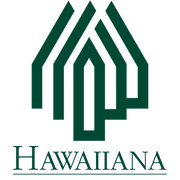FAQ: How Hawaii COVID-19 Mandates Affect Condo & Community Associations

Q&A answers provided by Mike Hartley, President of Hawaiiana Management Company, Ltd. While working remotely, Mike shares the “office” with toy poodles Honua and Koa. Together they want to encourage everyone to stay home and be safe!
Aloha! As you know, Governor Ige’s stay at home/work from home Order for essential and non-essential businesses and employees went into effect in Hawaii on March 25th, with additional restrictions regarding neighbor island travel on April 1. We wanted to share some of the most frequently asked questions we have received from the associations we serve on six Hawaiian islands. While we recognize that these answers may vary for each community based on the specific circumstances for each one, we hope our responses will help you determine the best course of action for your community. This list is by no means comprehensive, as we know that new questions will arise as we work through this complicated time.
Q. We have an annual meeting scheduled between now and the end of April, should we postpone it?
A. The Orders state: “All public and private gatherings of any number of people occurring outside a single household or living unit are prohibited,” (except for the limited purpose expressly permitted in the Order). We are recommending that any Annual Meeting be canceled, postponed or reconfigured (for ex: teleconferencing). However, please check your documents and consult with your association attorney since there may be legal implications.
Q. We have a Regular Board meeting and various committee meetings scheduled between now and April 30th, should we postpone them?
A. Cancelling or changing a previously scheduled Board meeting typically rests with the majority of the Board; however, be sure to check your governing documents. If you do hold a Board meeting, be sure to comply with the Order by holding the meeting via conference call or video call in lieu of a physical gathering.
While association business will still need to be conducted during this period, it can be difficult to discuss more complicated matters via conference/video call. Another option in lieu of a regular Board meeting is to hold a Special Meeting(s) and only focus on the essential action items needed by the Board during this time. We are encouraging our clients to communicate via phone or e-mail. Your managing agent can attend meetings by phone or video conference
Q. We have various amenities (i.e. – pool, sauna, library, gym, golf simulator, BBQ area, etc.) in our Association, should they be closed?
A. While some associations have kept some of their amenities open, subject to individuals complying with Social Distancing Requirements, many associations have already closed their amenity areas entirely. As a Board, you will have to make a decision in compliance with the Order. However due to the Order we are recommending that your common area amenities be closed at this time if you have not closed them already.
Q. Should we allow guests to visit our association?
A. Consistent with the Order, all individuals currently living within the state of Hawaii are ordered to stay in their place of residence. As such, we are recommending that guests should not be allowed into your Association or home.
Q. We have a new hire starting in a few days, should they still start?
A. We recommend holding off on any new hires unless the position they are being hired for is essential and cannot be covered by existing staff.
Q. Will our association vendors continue to work to maintain our association during this time?
A. There are various Essential Businesses identified in the Order that particularly relate to Association type vendors and includes; “Plumbers, electricians, exterminators, and other service providers who provide services that are necessary to maintaining the safety, sanitation and essential operation of residences;”
If a service(s) being performed is not essential or necessary per the section above, those services should be suspended. Examples may include items such as yoga classes, valet services, concierge services, and so forth.
If you have not already done so please check with the vendors who service your property to see if there are any changes in their work schedules. You may want to focus first on vendors who perform routine maintenance/services and any vendors who provide emergency services for your association.
Ask vendors what their policy is for any of their employees who have been exposed to someone who has tested positive for COVID-19, or have traveled off the island. Make sure they are required to self-quarantine for 14 days before returning to work.In addition, make sure that Social Distancing has been discussed with employees and is currently their standard practice.
Q. Should we stop charging maintenance fees and late fees? What about evictions, liens, foreclosures, covenant enforcement and assessing fines?
A. Due to the anticipated slow down/shut down of various businesses throughout the State, we can expect owners to fall behind on paying their monthly association fees. On Kauai, the Mayor has already issued a letter to associations to reconsider their covenant enforcement and fine policies at this time. We recommend reviewing options with your managing agent and association counsel on each of these issues so that you are ready to respond to owners when the questions arise.
Resources on this and other COVID-19 topics are available from professional organizations in the condo/community association industry, including the Community Associations Institute (caionline.org) or the Institute of Real Estate Management (irem.org).
Q. How do I know which employees are Essential and which are Non-Essential?
A. In short, each association will have to make a determination if a position(s) ultimately “provides services that are necessary to maintaining the safety, sanitation, and essential operations of residences.” While there are some differences in the Order that have been issued to date, there is also general consensus when it comes to Critical Trades. For example the Order issued by Governor Ige defines critical trades as: “Building and Construction Tradesmen and Tradeswomen, and other trades including but not limited to plumbers, electricians, exterminators, cleaning and janitorial staff for commercial and governmental properties, security staff, operating engineers, HVAC, painting, moving and relocation services, and other service providers who provide services that are necessary to maintaining the safety, sanitation, and essential operation of residences, essential activities, and essential businesses and operations.” Based on the definition, we are suggesting most association employees be considered essential employees. For example: general/resident manager, operations manager, chief/lead engineer, cleaning and janitorial staff, security staff, and maintenance staff. There may be others depending on the specific needs of the associations. Non-essential employees may include, but not be limited to some administrative staff, concierge, doorman, and valet. However, this may vary by association and by the individual association’s interpretation of who is essential or not. Please also note that some employees may be able to work remotely or there may be other essential duties that a non-essential employee could perform. As information is constantly changing, please check the specific Order for your island.
Q. What types of resources are available to association employees as it relates to COVID-19?
A. The Families First Coronavirus Response Act took effect on April 1. This will allow employees 80 hours of sick time and additional rights under the enhanced Family Medical Leave Act (FMLA). Additional Unemployment Benefits are also available to employees. Since this may continue to evolve, we would encourage you to work with your managing agent and your legal counsel.
In addition, the CARES Act, with emergency provisions for individuals, families and businesses impacted by COVID-19, was passed recently by Congress. The portion of the Act regarding the SBA’s Payheck Protection Program (PPP) is something your association may want to consider if it has employees. There could be legal and tax implications so please contact your association attorney and your CPA for further advice.
Q. If our association wants to apply for the SBA loan under the Paycheck Protection Program (PPP) in the CARES Act, do we need to have owners approve the loan, and would it require a majority owner vote?
A. We reached out to a number of association attorneys with regards to this question. The answer is probably yes – you do need to have owners vote on the loan, and it would require majority ownership approval. Opinions and documents can vary, however, so we strongly recommend that you contact your association attorney to confirm. This could provide an additional hurdle for associations, since application deadlines are time sensitive.
For more resources on the CARES Act as it affects condo & community associations, please see the following links:
https://www.congress.gov/bill/116th-congress/senate-bill/3548/text
Small Business Guide to the CARES Act
Torkildson, Katz, Hetherington, Harris and Knorek
Q. What happens if someone tests positive for COVID-19 in our building? Should we let other people know?
A. As you know, there are privacy and HIPPA laws that protect all of us when it comes to medical information so you should be very careful when it comes to disclosing any confidential information. However, you should take every precaution to maintain a clean and safe work and community environment. Many buildings have increased their building cleaning schedules particularly as it relates to any common areas. All of us should be following the guidelines outlined by the CDC and the Hawaii Department of Health. If you have additional questions, you should contact your legal counsel.
Q. If an employee was laid off prior to April 1, 2020 when the Families First Act Benefits took effect, will they still be eligible under the provisions of the Act?
A. They would not be eligible for benefits under this Act, however they may still apply for unemployment benefits.
Q. How can you help your “essential employees” travel freely to and from work under the stay at home/work from home Order?
A. In an effort to enforce the stay at home/work from home Order, checks are being conducted by law enforcement officers, sometimes at random. It may be helpful to provide a letter and/or ID card that each employee can carry with them which identifies them as an essential employee.
About the Business
Have a question? Ask the experts!
Send your question

